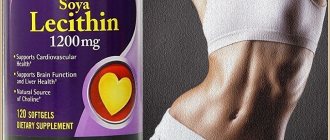What is whey protein?
This is a protein product, the source of which is whey.
It contains more essential amino acids, as well as branched chain amino acids BCAA (valine, leucine, isoleucine) than other proteins of animal and plant origin. Whey protein is often called “fast” protein (whey protein), as it is very well absorbed, supplying muscles with the amino acids necessary for their growth. The desired result is sculpted muscles. Another benefit of whey protein is that it helps you shed extra pounds. Therefore, sports nutrition products based on it can become a means of choice for girls and women who want to lose weight, as well as for men who want to “dry out” the body, but not lose muscle mass. As studies have shown, when taking whey protein, a person quickly develops a feeling of a full stomach and satisfying hunger, which leads to a decrease in appetite and allows one to reduce the calorie content of the daily diet by eating less food.
The benefits and harms of high protein diets
Of course, a protein diet has its strengths. With the help of protein, you can easily control the hormones of satiety and hunger (ghrelin, GIP, GLP-1) and thereby achieve weight loss. Also, high protein content in the diet helps control muscle mass and increase thermogenesis. But you need to keep in mind that the Western diet, combined with a large amount of protein, can also lead to metabolic disorders. In addition, it is alarming that there is still controversy regarding the insulin sensitivity of a person who eats a lot of meat to the detriment of plant foods.
Various experiments were carried out, but all the data obtained were quite contradictory. Some experts claim that protein diets increase sensitivity to insulin, which means they make a person lose weight. Others say insulin sensitivity decreases.
The research, as you can see, is quite mixed:
- Insulin sensitivity increases
. To prevent diabetes mellitus, as well as its treatment, it is recommended to eat 1.2-1.5 grams of protein per 1 kg of body weight per day. But other recommendations should also be followed: reduce the amount of carbohydrates, increase physical activity, and use nutritional supplements.
- Insulin sensitivity remains the same
. Other studies suggest this.
- Insulin sensitivity decreases
. In one of the experiments, 2 groups of people were compared. One consumed 0.8 g of protein per 1 kg of body weight, and the second - 1.2 g of protein. The number of calories was the same. It turned out that in the second group, insulin sensitivity became lower.
A high-protein diet reduced the rate of muscle loss by 45% but did not reduce oxidative stress. There were also no other benefits in this group that were seen in people who ate less protein. The differences in the impact of both diets can be seen in the picture below:
Another study was conducted with patients with diabetes. They were divided into two groups: in the first group, 40% of calories were covered by carbohydrates, and 30% by protein, and in the second, carbohydrates and protein accounted for 55% and 15%, respectively. In group number 1, no changes were observed. In the participants of the second half, the content of glucose and glycated hemoglobin in the body decreased, and sensitivity to insulin increased.
Other experiments have confirmed that high-protein diets speed up metabolism and reduce the risk of cardiovascular disease, but also cause insulin sensitivity to be about 19% lower. Researchers say there's nothing wrong with this because it's a metabolic adaptation.
- The effect is exerted not only by BCAAs (branched chain amino acids, found mainly in milk), but also by the products of their catabolism - C3 and C5 acylcarnitines, which, due to the formation of certain protein molecules, lead to a failure of the tricarboxylic acid cycle, thereby reducing the amount produced energy. In addition, intermediate substrates accumulate, mitochondrial function slows down, and insulin resistance occurs.
Types of protein complexes: which one is better?
Whey protein usually comes in concentrate, isolate, or hydrolyzate form.
- Concentrate (WPC) is the most common form of moderately purified sports protein. The proportion of protein in such a product can range from 40 to 80%. Gentle technological processing allows you to preserve such useful protein microfractions as lactoferrin, lactoglobulin, albumin, and immunoglobulins. But at the same time, a certain amount of fat and lactose remains in the product. The concentrate has a relatively low price. The body absorbs it in about an hour and a half.
- Isolate (WPI) is a more purified product containing a minimum of impurities. The protein content in it reaches 90-95%. However, the isolate is practically devoid of useful microfractions and may have increased acidity due to the presence of intermediate compounds, which is due to the peculiarities of the production technology. The body copes with the breakdown of whey isolate in half an hour.
- Hydrolyzate (WPH) is a pure protein product in the form of a very fine powder that easily dissolves and is quickly absorbed in the intestines. Already 15-20 minutes after taking the hydrolyzate, a so-called “amino acid surge” is observed in the blood. However, this protein is quite expensive, so it is not available to everyone.
SportExpert Whey protein, strawberry flavor, 908 g, Evalar
1 597 ₽
Dietary supplement NOT A MEDICINE
The choice of whey protein largely depends on your goals, financial capabilities and the presence of certain restrictions on use. For example, if you want to maintain muscle mass and are not lactose intolerant, you can choose concentrate. If it is available, then you need a source of highly purified protein that is quickly absorbed by the body. In this case, pay attention to isolate or hydrolyzate.
The latter, by the way, is great for taking immediately after a workout, as it can quickly saturate the body with the amino acids it needs so much. Since pure whey protein doesn't taste very good, flavorings are added to it. Protein powders with chocolate, vanilla, and strawberry flavors are very popular and are used to make protein shakes.
How to take whey protein to gain muscle mass?
To achieve maximum results - confident muscle growth - it is important to know in what quantities and at what time you should take whey protein. For intense training, the optimal dosage is 1.5-2 g of protein per 1 kg of weight. Please note that we are talking about pure protein, not protein powder. To correctly calculate exactly how much whey protein you need to take, look on the packaging for information about the protein content per serving. Focus on this number.
Whey protein, Vanilla flavor, 1 kg, IRONMAN
1 495 ₽
Dietary supplement NOT A MEDICINE
For example, your weight is 75 kg. For intense training, you should consume 112.5-150g of pure protein (1.5g or 2g x 75kg). Let's say that 1 serving of your whey protein contains 27 g of protein. Therefore, you need to take 4.0-5.5 servings of the product (112.5 g or 150 g / 27 g). It is recommended to consume no more than 25-30 grams of protein at one time, since your body simply cannot absorb its excess. It is better to increase the frequency of reception. When is it recommended to consume whey protein? Now we'll tell you.
- In the morning, after waking up.
Taking whey protein at this time allows you to compensate for the lack of protein spent on maintaining your body's vital functions during the night. - Before training.
This is one of the main tricks of whey protein. If you use con, it should be 90 minutes before going to the gym. If you prefer isolate, you can take it 30 minutes before training. Remember that you should not skip this protein intake. Increased physical activity requires a lot of energy, and if there is a deficiency, it will be “produced” through the breakdown of muscle proteins. We simply cannot allow this. - After training.
After physical activity, your body again needs amino acid “feeding”. Take another serving of whey protein. - For the night.
Many athletes take a cocktail of “fast” and “slow” proteins before bed (the latter includes, for example, casein). This allows you to maintain a stable level of amino acids in the body for 7-8 hours. The remainder of your daily protein intake can be taken at other times during the day. You should also drink protein on days when you are not going to the gym. In this case, the daily dose of protein is usually half of what you consume on training days. Take it in three servings: in the morning after waking up, at 5-7 pm and before bedtime.
Bottom line: in what doses should you take protein?
Based on the research above, 20 to 40 grams of whey protein is sufficient to maximize muscle protein synthesis. So, if, for example, your whey protein contains 16 grams of protein per scoop, 32 grams will be the optimal dose for you, and excess will not affect your synthesis in any way, which cannot be said about your wallet.
I recommend adding at least 30g of protein to your shake.
It's time to stop drinking 4 - 5 scoops per cocktail. As these studies show, there is no need to make shakes with more than 40 grams of protein, even after a workout.
Now that you know the optimal dose of whey protein per serving, let's move on to the second question, namely: when during the day is the best time to drink your shakes.
1: Protein in the morning before or after meals
Can I drink protein in the morning? To answer this question, let’s figure out what you need to eat in the morning. I mostly imagine bodybuilders cooking themselves different egg dishes in the morning. Omelette, fried eggs, poached and boiled eggs are a source of the highest quality protein. But I need something quick and simple after bed that will provide the same amount of protein as regular cooking.
A whey protein shake is a quick, easy, and delicious source of protein for breakfast.
The first thing you should do in the morning is to drink a protein shake, since these early hours are considered the most suitable time of day to drink protein in the morning, because while you were sleeping, the body was without food for 7 to 9 hours. In order to maintain a positive protein balance, it is extremely important to provide the body with a highly biological and quickly digestible source of protein first thing in the morning. Whey protein is the ideal solution.
A bowl of oatmeal, muesli or buckwheat with a protein shake is a healthy breakfast for muscle growth.
2: Pre-workout protein
Drinking a protein shake before a workout is undoubtedly beneficial, but it's honestly not really necessary.
If you had a full meal of lean protein and carbohydrates 2 hours before your workout, then drinking a pre-workout shake is not necessary because you will have enough nutrients in your body that will provide you with the energy you need for your workout and reduce muscle breakdown. squirrel.
However, if you don't have enough time or 3 hours or more have passed since you ate, then it is recommended to drink a protein shake before your workout. It ensures that you have enough amino acids in your body, which will reduce muscle protein breakdown during exercise and aid in the post-workout recovery process.
If you are losing weight...
Of course, just taking protein and not dieting or going to the gym regularly will not give you the silhouette of your dreams. When starting to take whey protein, you should first reduce the caloric content of your diet. The rule is very simple: you need to consume 15% fewer calories than you burn. Otherwise, the excess weight simply will not go away.
Whey protein for weight loss can be taken as a snack between meals. But many girls sometimes replace the meals themselves with it, which is also quite acceptable. The main task is still successfully solved: the total calorie content of the daily diet does not increase, but protein consumption increases noticeably, which is what we need.
How much protein should you take? As with gaining muscle mass, that is, 1.5-2 g per 1 kg of weight. Divide the calculated daily dose of protein into three equal parts and take it in the morning, 2 hours before training and after finishing training. On rest days, protein can be taken in the morning, afternoon and before bed.
Whey protein SPORTEIN Enriched PROTEIN, vanilla flavor, 750 g, Academy-T
1 500 ₽
Dietary supplement NOT A MEDICINE
Main recommendations
It's worth noting that our body's protein needs may vary. This factor depends on many nuances - the scale of weight gain tasks, volume of loads, training time, diet, and so on. At the same time, there is a time-tested schedule that allows you to sufficiently provide the body with protein:
- Morning. Many people think that drinking protein in the morning is useless, because the workout is still far away. This is wrong. Despite the lack of physical activity, the body still works and is exhausted. During six to eight hours of sleep, the muscles actually do not receive nutrition, which is fraught with the start of catabolic processes. This is why it is so important to replenish your muscles with amino acids and stop the destructive effects of cortisol. During this period, it is best to take a portion of slow or complex protein.
- Within 24 hours. To grow muscle mass, amino acid reserves must be replenished regularly. Therefore, you need to drink protein not only in the morning or in connection with training, but also throughout the day. The best time is an hour after eating. The optimal dosage is 20 grams. When it is not possible to eat a full meal, it is advisable to make a cocktail from a complex or slow protein.
- Before the training. About an hour before going to the gym, it would be a good idea to take another portion of fast protein. In some cases, regular protein can be replaced with already prepared bcaa amino acids. But in the latter case, you need to drink the supplement almost before training (20-30 minutes before). It is important to remember here that in the absence of the required concentration of amino acids in the blood, time spent in the gym may be wasted. With a lack of protein, the body will begin to break down its own muscles. Timely intake of such a supplement allows you to suppress these processes.
- After the training. During the training period, the body has completely exhausted its reserves and requires urgent replenishment. Sugar, amino acid and glycogen levels are at a minimum. During this period, it is important to give the body a full supply of amino acids and carbohydrates. The ideal option is to drink a gainer after exercise, supplementing it with a portion of high-quality protein or bcaa amino acids. Protein will provide muscles with building material, and carbohydrates help restore and replenish energy deficits.
- Before going to bed. There is an opinion that protein before bed is the path to excess fat deposits. If you take carbohydrates and fats, then this is true. Protein is completely safe in this regard. Do not forget that during sleep the body does not receive proper nutrition, which means it will take energy for work from internal sources. To avoid negative processes, it is advisable to drink a portion of slow protein half an hour before bedtime.










